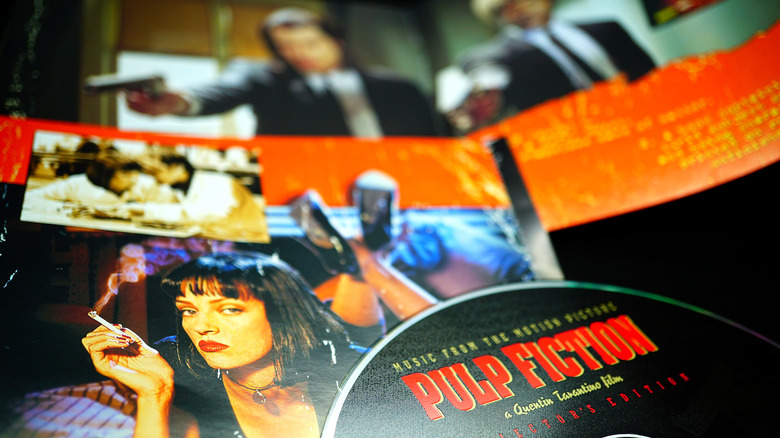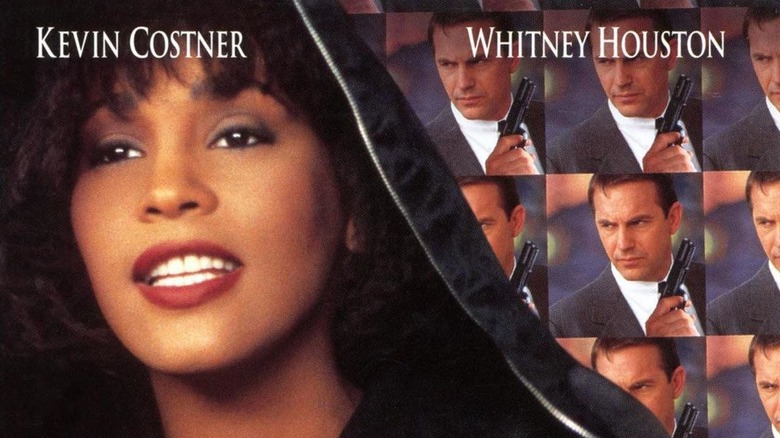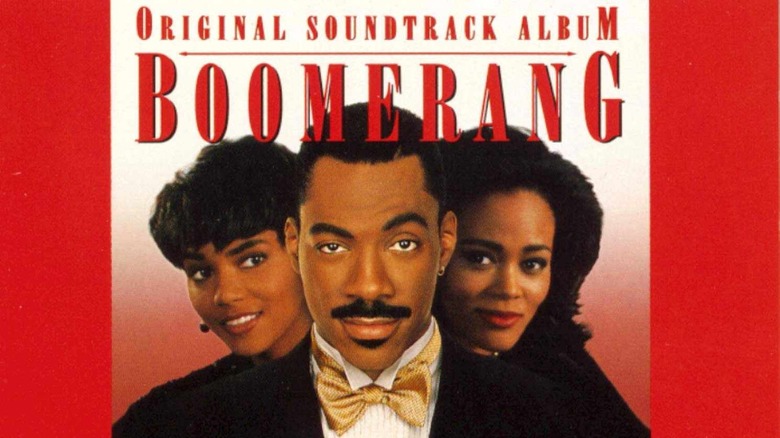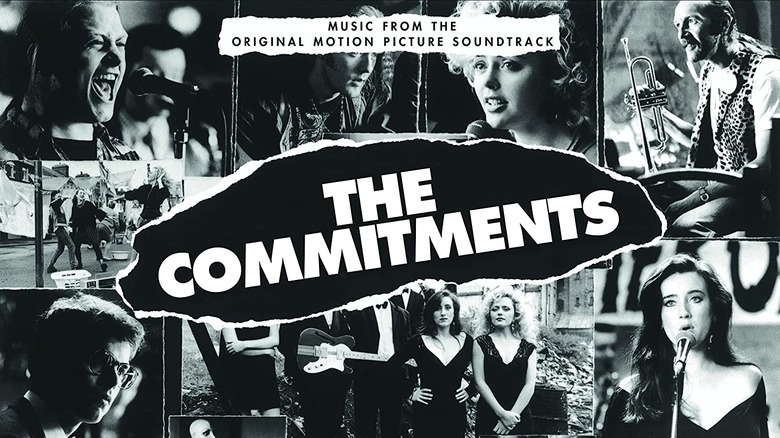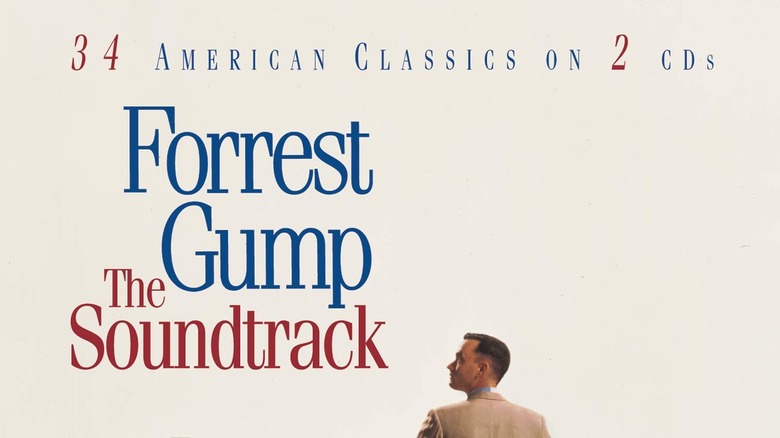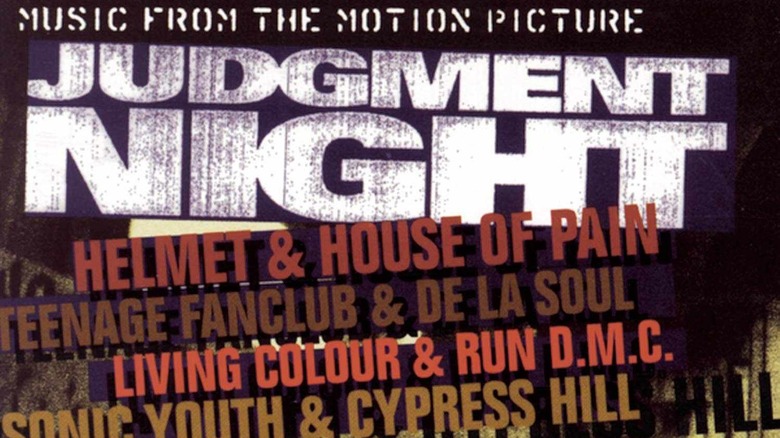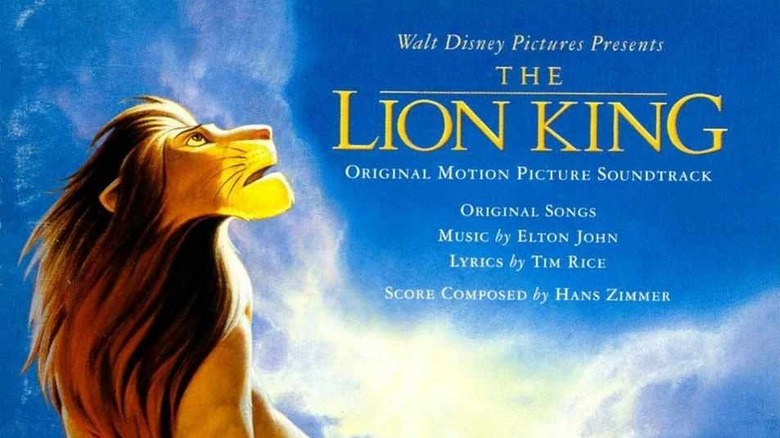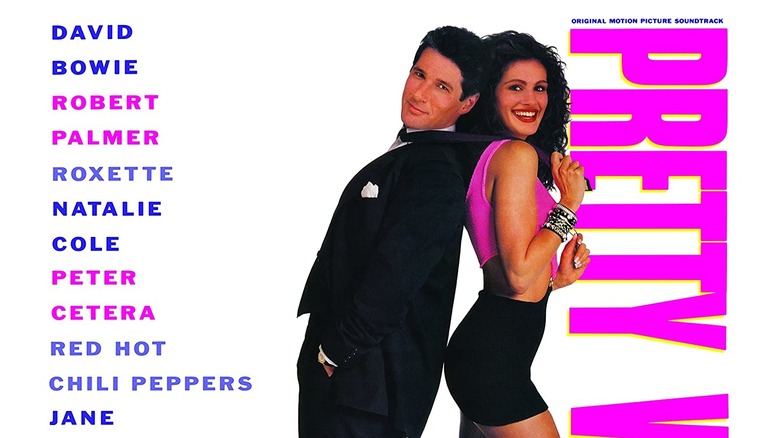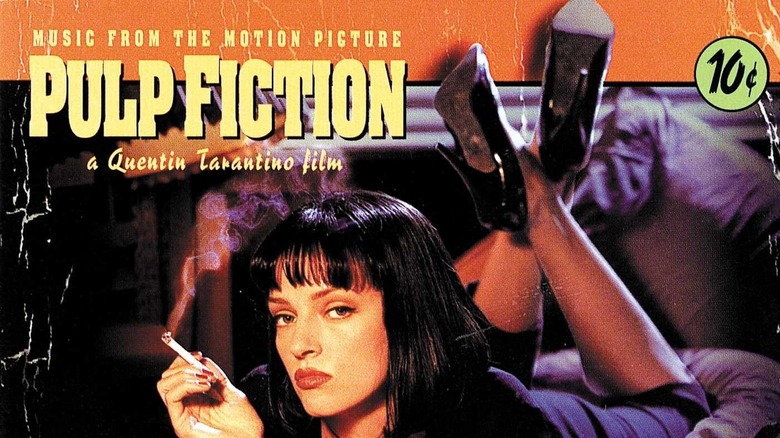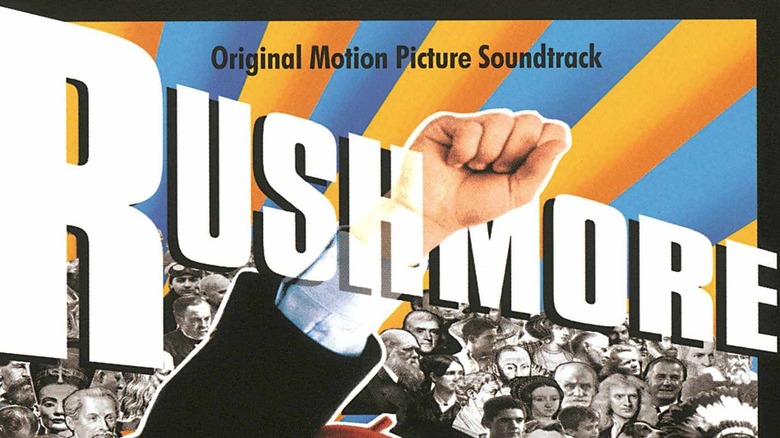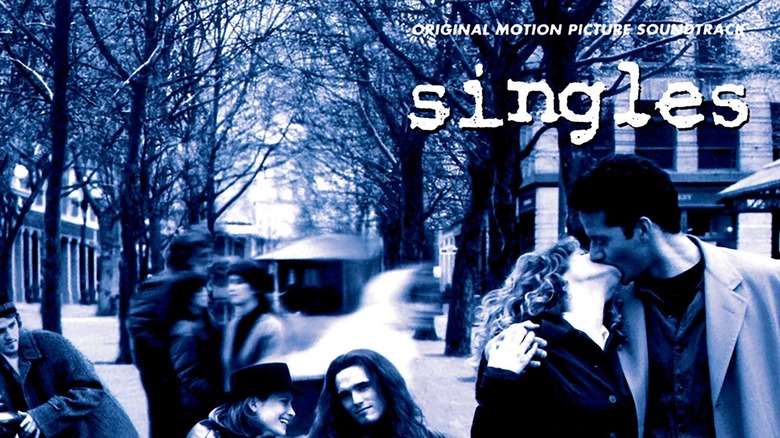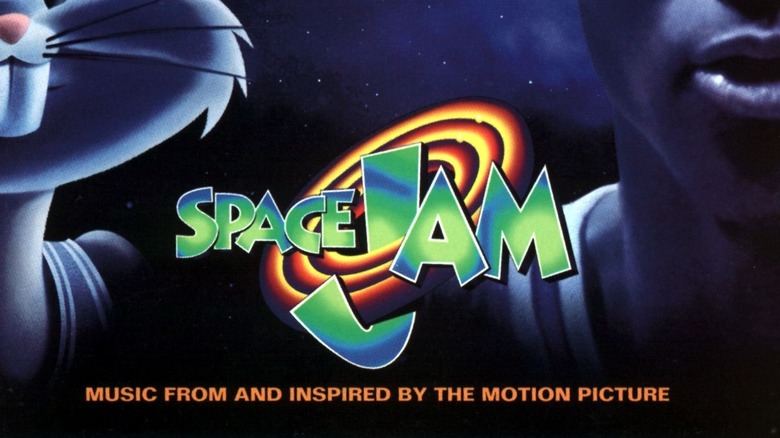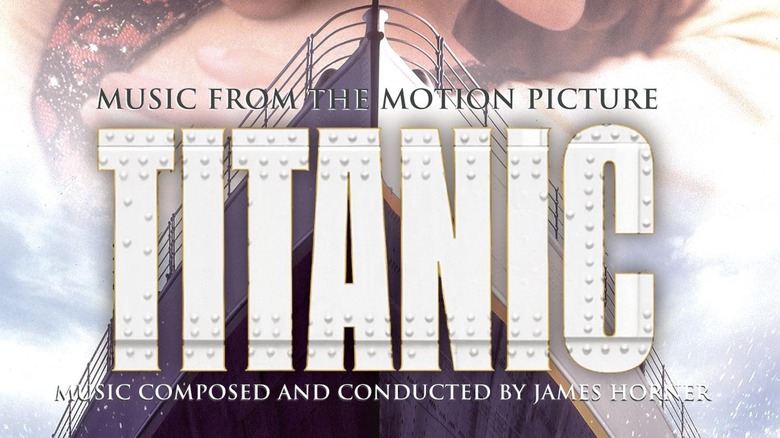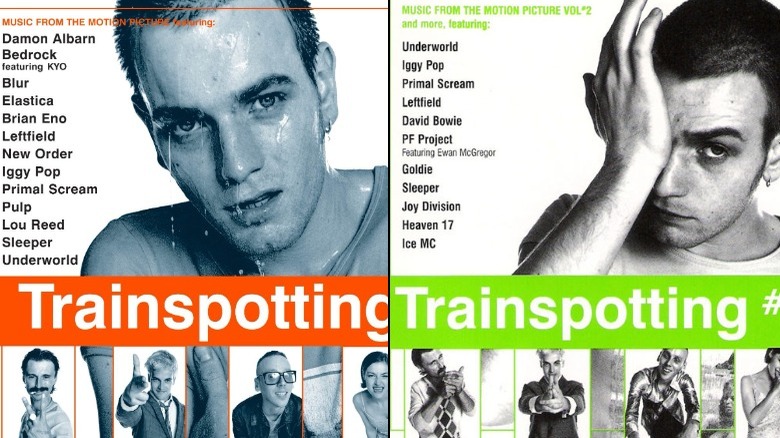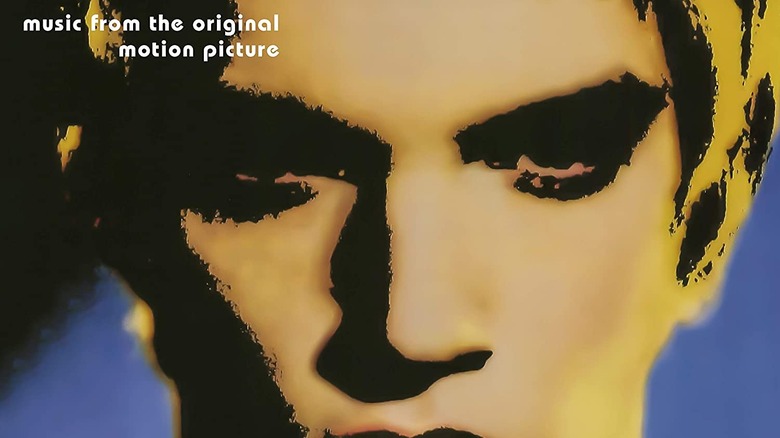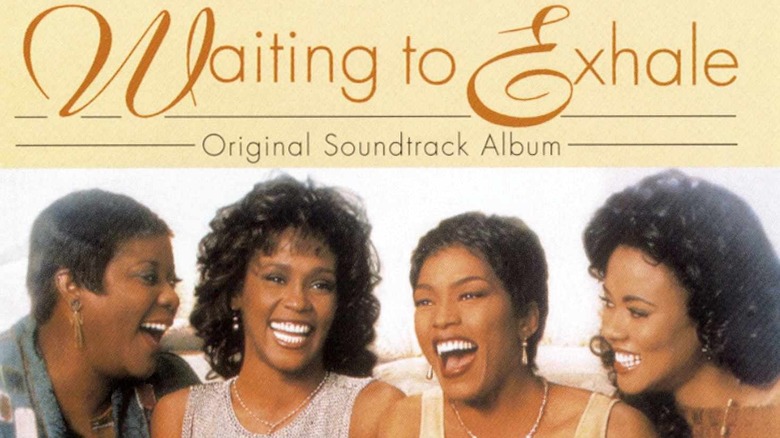The Best Movie Soundtracks Of The 1990s
The movie soundtrack reached new heights in the 1980s, as they became a chart juggernaut both financially and in the viewers' hearts and ears, playing on their sense of nostalgia while riding new waves of modern music.
The 1990s took the soundtrack to the next level, allowing strong female voices to sing out loud and proud, while helping lions roar, prostitutes be pretty, heroin users become heroes, and Bugs Bunny and Michael Jordan believe they could fly.
Looking back on those soundtracks now, we do so with such fondness, because these cassettes/compact discs became the soundtrack to our lives as well. In those days, Whitney Houston and Babyface were always on point (x2), Cameron Crowe was all over the Seattle grunge scene before anyone else, Randall Poster made the '60s and '70s feel fresh again, Quentin Tarantino had the coolest record collection of any of our friends, and a little hard working band from Ireland had so much heart and soul.
So, keep your pencil handy in case you need to fix the tape. Perk up your ears, and take in the best movie soundtracks of the 1990s.
The Bodyguard (1992)
Whitney Houston pulled double-duty for 1992's "The Bodyguard," making her acting debut opposite Kevin Costner's protective titular character, as well as providing six songs on the album that earned 19 times multiplatinum status in the U.S., on its way to becoming the greatest selling movie soundtrack of all time. Also on board were songs by Kenny G and Aaron Neville, Lisa Stansfield, and others.
Six tracks from the album were released as singles, with Houston's cover of Dolly Parton's "I Will Always Love You" topping the charts for a then-unprecedented 14 weeks. According to The Tennessean, the song was originally suggested to be used for the film by Costner's secretary, and Houston resisted recording it, but "I found myself singing and loving it."
Two additional Houston contributions, "I Have Nothing" and "Run to You" were nominated for Best Original Song at the Academy Awards, and the soundtrack netted 3 Grammys in total, including Album Of The Year. Houston opened the show singing the Parton cover, and was even handed one of her awards by Parton herself. Parton said, "When I wrote that song 22 years ago I had a heartache, but it's amazing how healing money can be." With the millions she earned in royalties from the song, she invested some of it in a building located in a historically African-American Nashville neighborhood. As she told Andy Cohen, she was proud that "this is the house that Whitney built."
Boomerang (1992)
Eddie Murphy plays an ad exec with too many women on his plate in Reginald Hudlin's 1992 comedy "Boomerang." Almost as prolific, but on the music side, are the team of Kenneth "Babyface" Edmonds, L.A. Reid and Daryl Simmons who wrote and produced 6 of the 12 tracks heard on the 3 times multi-platinum album that topped out at #4 on the US Billboard 200 chart. Big names graced the tracklisting including Johnny Gill, T.L.C., P.M. Dawn, Boyz II Men, A Tribe Called Quest, and Grace Jones (who was also in the film) all taking a turn on the mic.
Toni Braxton's duet with Babyface, "Give U My Heart," became a hit, with L.A. Reid telling The Chicago Tribune they used the soundtrack as "a way to introduce Toni to the public and get them ready for her solo album."
Babyface offered "End of the Road" to Boyz II Men, who recorded the song while on tour. Babyface told SongwriterUniverse, "It felt really great, but we had no idea that it was gonna do what it did," as it became a number one hit for 13 consecutive weeks.
For the film and soundtrack, Reid said "We're really proud of the fact that this is such an African-American accomplishment. That's the most fulfilling thing to come out of all of this."
The Commitments (1991)
Director Alan Parker auditioned 3,000 hopefuls (including the Corrs) to create "The Commitments," aka "the world's hardest working band," who bring soul to Dublin. The band's final lineup consisted of a 16-year-old cocksure kid named Andrew Strong with a voice as powerful as Joe Cocker's, Frames frontman and future "Once"/Swell Season wunderkind Glen Hansard, and even a trumpeter who never played a trumpet.
Parker told the L.A. Times that "The Commitments” was "far and away the most enjoyable film I ever made," where they started with a list of 300 soul songs and narrowed it down to "68 different music cues, including 52 different songs." The jam-packed film warranted two volumes of soundtrack releases, including such classics rendered fresh as Wilson Pickett's "Mustang Sally," Otis Redding's "Try A Little Tenderness," and Martha and The Vandellas' "Nowhere to Run."
The first volume sold over 13 million copies worldwide; most of the band reunited for a concert tour in honor of the 20th anniversary, in 2011.
Fun fact: Peter Rowan, the child featured on the album covers of U2's "Boy" and "War," briefly appeared in the film.
Forrest Gump (1994)
Twenty years after the release of the 12-times multiplatinum "Forrest Gump" soundtrack, director Robert Zemeckis and screenwriter Eric Roth released this statement:
"Forrest Gump is about time; a simple man's journey through complicated times. The coming-of-age of a generation and a country. And at the heart of the story is the music, music that lives with us, always there to remind us of the people, the places, and the events of our time."
Zemeckis purposely avoided using any British music, revealing to Billboard in 1994, "We had to limit the music to American classics because we knew that this was a classic American story. This is the music I grew up with. It jogs you emotionally and takes you back in time. It's a real celebration of America and American music."
The double-disc soundtrack album, which peaked at number 2, features beloved favorites by Elvis, The Byrds, Dylan, The Doors, The Supremes, and Fleetwood Mac.
Judgment Night (1993)
If you judged "Judgment Night" by its soundtrack, you'd probably think the 1993 Emilio Estevez/Cuba Gooding Jr. screen adventure was an amazing, landmark film. But if you asked co-star and soundtrack participant Everlast of House of Pain, like they did in the incredible Oral History compiled by Rolling Stone, he said, "the best thing about that movie is the soundtrack. It's the only good, redeeming thing."
Spearheaded and shepherded by House of Pain and Cypress Hill's manager Happy Walters, the soundtrack employed the brilliant idea of pairing hip-hop groups with rock bands, an idea at the time that had basically been limited to Run D.M.C./Aerosmith's "Walk This Way" and Public Enemy/Anthrax's "Bring the Noise." According to Walters, most "rockers" wanted to work with Cypress Hill, and Pearl Jam and Sonic Youth did respectively, with Kim Gordon recalling, "There's a lot of sitting around, smoking pot." Other odd bedfellows that made sweet sweet music together included Helmet and House of Pain, Slayer and Ice-T, Faith No More and Boo-Yaa T.R.I.B.E., Teenage Fanclub and De La Soul, and Seattle neighbors Mudhoney and Sir Mix-A-Lot.
Sir Mix-A-Lot proclaimed that it "may have been one of the coolest projects ... in hip-hop history," with D.M.C. adding that it was "a prophetic industry record" that opened the doors to bands like Limp Bizkit and other "rap-rock" acts that would come to prominence later in the decade.
The Lion King (1994)
Broadway lyrical mastermind Tim Rice needed help in putting the songs together for Disney's first animated feature with an original story, "The Lion King." He rang up Elton John, who said "that one phone call ... changed my life and my career." At first he had reservations singing about "a young warthog," and thought, "Has it come to this?," but ultimately saw it through, telling Time that he "wanted to write melodies that kids would like."
The Grammy-winning soundtrack, which also included parts of Hans Zimmer's Academy Award winning score, went 10 times multi-platinum, spent 10 of its 88 weeks on the Billboard Chart at number one (among only five soundtracks from an animated movie to do so). Three of those John/Rice collaborations received an Oscar nomination for Best Original Song: "Hakuna Matata" (Rice told Vulture, "It was in this Swahili book, and I thought, If it's pronounced the way it's supposed to be pronounced, then it's going to sing well," adding "I didn't know how it was pronounced."), "Circle of Life" (which Barack Obama hilariously used as an "Official Birth Video"), and "Can You Feel the Love Tonight" (with backing vocals by Rick Astley), which took home the prize for the two Sirs.
"The Lion King" and its soundtrack was adapted for a Tony Award winning Broadway show in 1997, and again for a "live-action" remake film version in 2019.
Pretty Woman (1990)
J.F. Lawton wrote "3,000" about a prostitute who opens the eyes of a wealthy businessman, which eventually turned into a fairy tale by Disney and Gary Marshall, starring Julia Roberts and Richard Gere. The beloved 1990 film took its new title from the 1964 Roy Orbison hit "Oh, Pretty Woman," and brought the singer new fans and adoration two years after he had passed away. Orbison was joined on the triple-platinum soundtrack by Robert Palmer, Peter Cetera, Red Hot Chili Peppers, Natalie Cole, and even a "90" remix of David Bowie's "Fame."
Swedish duo Roxette dusted off their 1987 single "It Must Have Been Love (Christmas for the Broken-Hearted)," slightly updated the lyrics and made it a number one chart topper for two weeks. Roxette's Per Gessle told Songwriting Magazine, "It's not enough if you have the right song, it has to be the right timing. We were lucky to be involved with the movie." It wouldn't be the last time they made another version of the song.
Peter Cox overheard his Go West bandmate Richard Drummie say they were "the kings of wishful thinking," which they eventually turned into the first song heard, uninterrupted, in "Pretty Woman." "The King of Wishful Thinking" had a music video so memorable that Jimmy Fallon and Paul Rudd did a shot-for-shot remake of it.
Pulp Fiction (1994)
In an interview with Discogs, Quentin Tarantino said he was "as proud of my discography as I am of my filmography." One of the most essential soundtracks in his collection has been for 1994's "Pulp Fiction," which providing excellent background and foreground noise for his intertwined storylines involving a gangster, his wife, his hitmen, a boxer, two thieves, a fixer, and a plethora of quotable dialogue.
Music Supervisor Mary Ramos told USA Today that Tarantino was looking to have "a surf-guitar, Spaghetti Western soundtrack," which led to the resurrection of the 1962 classic "Misirlou" for use in the opening credits. Tarantino painted "Misirlou" as a song that "says you're watching an epic," so epic and a part of pop culture that even "Space Jam" dropped a reference to it.
Other choice cuts from the 3 times multi-platinum soundtrack sprung from Tarantino's own record collection. Neil Diamond initially turned down the use of his "Girl, You'll Be a Woman Soon," but came around to the obscure Urge Overkill cover being used. Urge's singer-guitarist Eddie "King" Roeser told Cuepoint the move "changed the trajectory of our musical career, and film history, at that." Dusty Springfield's "Son of a Preacher Man" was so vital to the scene of Mia Wallace getting ready for a night out that Tarantino had said if he couldn't have obtained the rights, "I probably would have cut [the scene] out." One choice even came in utero, as music supervisor Karyn Rachtman said that Quentin's mother used to listen to Chuck Berry's "You Never Can Tell" when she was pregnant with him.
Rushmore (1998)
In the liner notes to his "Rushmore" soundtrack, director Wes Anderson admitted he wanted the entire score filled with music by The Kinks and their "loud, angry teenage rock songs," and the fact that "they wore blazers and ties," which matched the persona and wardrobe of "Rushmore" hero Max Fisher, played by Jason Schwartzman in his acting debut. Anderson and music supervisor Randall Poster expanded the roster to include like-minded and spirited bands from the British Invasion era. That class of invaders included The Who, The Creation, Chad & Jeremy, and The Faces. It was that later band's "Ooh La La" that inspired Anderson, as he told EW, he "wrote the last scene with the song still playing in my head."
The album is rounded out with parts of Mark Mothersbaugh's score, Yves Montand, and "Oh Yoko!" by John Lennon (Anderson later cast the "supportive" Yoko in "Isle of Dogs"). Poster is most proud of coaxing the longtime reluctant Yusuf Islam/Cat Stevens to use his music. He told NPR that Stevens' "Here Comes My Baby" became one of "those iconic Wes Anderson cinematic moments that I think will thrill people forever." Islam/Stevens himself thought the choices of his songs were "terrific," telling Rolling Stone, "I can't hear 'The Wind' and not think of that movie."
Singles (1992)
Cameron Crowe's Seattle-infused flick sat on a shelf for a year until the grunge music scene exploded, making the film and an ahead-of-its-time soundtrack exactly what pop culture was craving at that moment. When the two-time multiplatinum album was remastered recently, Crowe said in a statement it "was always designed to be sort of an anti-soundtrack, more like a souvenir and a simple mix-tape of some of Seattle's finest."
That finest included Alice In Chains, Jimi Hendrix, Mother Love Bone, Chris Cornell and Soundgarden, Crowe's then wife and sister-in-law, Nancy and Ann Wilson, and non-Washington state musicians The Smashing Pumpkins and Paul Westerberg. Alice In Chains and Cornell appeared in the film, as well as members of Pearl Jam, who were a part of Matt Dillion's fictional band. Crowe told Rolling Stone that Eddie Vedder wrote "State of Love and Trust" after reading the script, and "It became the soul of the movie in many ways." Crowe even employed Pearl Jam's bassist Jeff Ament to help with the "Singles" title cards, and as a set decorator, using his own band posters from home.
As soundtrack producer Danny Bramson reflected in the 2012 book "Everybody Loves Our Town," "It was heartening to read both The New York Times and MTV saying that 'Singles' was the soundtrack of the '90s, and was a really inspiring force for all quote-unquote alternative programming and playlists."
Space Jam (1996)
Believe it or not, there was once a time when R. Kelly was considered an inspiring person, and he brought an airy anthem to the Looney Tunes-NBA cartoon/live-action 1996 hybrid movie "Space Jam." Kelly played basketball with Michael Jordan, who asked him to write a song for the film. Kelly came up with "I Believe I Can Fly," which he knew "was gonna be the song that was gonna take me out of R&B and into another genre of music."
"I Believe I Can Fly" and the rest of the "Space Jam" soundtrack reached as high as number two on the singles and album charts, respectively. It eventually went six times multiplatinum, netting R. Kelly the only 3 Grammys to his name. Joining in on the jammed-packed album were a title track by Quad City DJs, a collaboration by B-Real, Busta Rhymes, Coolio, LL Cool J and Method Man, a KC and the Sunshine Band cover by the Spin Doctors featuring Biz Markie, a Cheech and Chong cover by Barry White and Chris Rock, and a Bugs Bunny rap ghostwritten by Jay-Z.
Seal's cover of Steve Miller's "Fly Like An Eagle" became a top ten hit, and said that, according to Genius, he "actually got a call from Steve Miller thanking me and saying that was the best cover of the song that he had heard." When Steve Miller discussed the song in 2014, however, he seemed to have a very different opinion.
Titanic (1997)
When Enya passed on working on the music for James Cameron's epic "Titanic," it opened the door for composer James Horner to walk in and patch things up with his unhappy "Aliens" director. When Horner died in 2015, Cameron paid tribute to him by saying they were a "dream team," and that he cried when he first heard a solo piano theme by the composer.
Horner estimated, to the French magazine Dreams To Dream, that there were 138 minutes of music within the movie, and not all of it could be included on the album, so what he "tried to do was make it more than emotional, very focused ... from beginning to end." One of those songs included was the mega-smash hit "My Heart Will Go On," which he and Will Jennings wrote in secret, and Céline Dion initially rejected. They cut a demo, and Dion, recalling to Andy Cohen in 2019, said, "I sang the song once and they built the orchestra around it. I never re-sang it for the recording. The demo is the actual recording. After that I've sang it about three gazillion times"
The song was #1 around the globe and the soundtrack spent 16 weeks at #1, went 11 times multiplatinum, becoming one of the highest-selling albums of all time, and resulted in James Horner double-fisting Oscars. Billy Zane can't even escape the clutches of "My Heart Will Go On," having once been spotted at Harrods in England while it was playing, and he "felt like Norma Desmond coming down the staircase."
Trainspotting (Volumes 1 and 2) (1996)
Looking back on the impact of the soundtrack for "Trainspotting" (which spanned TWO volumes), director Danny Boyle told the Hollywood Reporter, "we just put all our favorite tunes on it, saw that it works, and everybody loved it!"
Irvine Welsh, author of the "Trainspotting" novel, recalled to Vice that musicians he and the filmmakers knew "were so enamored with the movie and wanted to be involved ... so that helped us secure the rights for a low cost, and sometimes no cost." The costs they had to pay, according to Esquire, was almost half the "Trainspotting" budget.
EMI A&R honcho Tristram Penna advised Boyle and producer Andrew Macdonald on musical choices, selecting Iggy Pop's "Lust for Life" for the opening scene, knowing "it would get the adrenaline rushing." Penna also pushed for Lou Reed's "Perfect Day," but later expressed regret to Dazed for the BBC's ensuing cover version.
Also drafted to keep the film pulsating aurally were Pulp, Primal Scream, Blur (and a solo song by Damon Albarn listing all of the Sean Connery Bond films), Brian Eno, New Order, and Underworld.
Velvet Goldmine (1998)
Todd Haynes wanted his dazzling "Citizen Kane"-esque "Velvet Goldmine" to "feel like a dream in a way, a dream of glam rock, something more sumptuous and rich and multi-textured than it was for people who might have lived through it." It's title was named for a David Bowie song, although the Thin White Duke wasn't interested in providing any music for film, and he ultimately wasn't a fan of the final product as told to The Big Issue.
Music supervisor Randall Poster felt "totally liberated when we let Bowie go, or when Bowie let us go." He and executive producer/R.E.M. frontman Michael Stipe curated a stellar line-up of rock icons (T. Rex, Roxy Music) and modern masters (members of Radiohead, Sonic Youth, and Pulp) pitching in, filling the back catalogue of the film's two fictitious bands, the Bowie-like The Venus in Furs and the Iggy Pop-py Wylde Ratttz.
The album and film were not a commercial success, but a critical and cultural one, as Stipe told MTV, "It's exactly over the top, dramatic. It reproduces the feeling [of the times] and it was a great soundtrack."
Waiting To Exhale (1995)
Whitney Houston and Babyface made soundtrack lightning strike again with "Waiting To Exhale," based on the novel by Terry McMillan that focused on the deep bonds between four African-American female friends.
Houston wanted the soundtrack to feature nothing but "women with vocal distinction — women that you can call by their first name and not have to mention their last name." Those women included Toni, Aretha, Brandy, Mary H., Chaka, Patti, Faith, Left Eye, and naturally the movie's star herself, Whitney.
Quincy Jones was the original choice for soundtrack producer, but Babyface was happy to "take Quincy's leftovers." He had a hand in writing all 16 tracks, "looking at each character and kind of trying to fill their lives and put that to music," to which Houston replied in the same interview, "each song off of the soundtrack fits each woman that sings it. It's amazing how he did it, I still don't know how he did it."
What they did was mastermind a soundtrack that spent 5 weeks at #1 and begat 7 singles. Two of those singles reached the top of the charts (Whitney's very last #1 hit "Exhale (Shoop Shoop)" and Toni's "Let It Flow"), and the album itself garnered 11 Grammy nominations and 1 win, and went 7 times multi-platinum. Numbers aside, Houston said, "soundtracks even make the movie even larger a lot of times," adding "everything fit. And that's the way 'Exhale' the album does with this movie."
